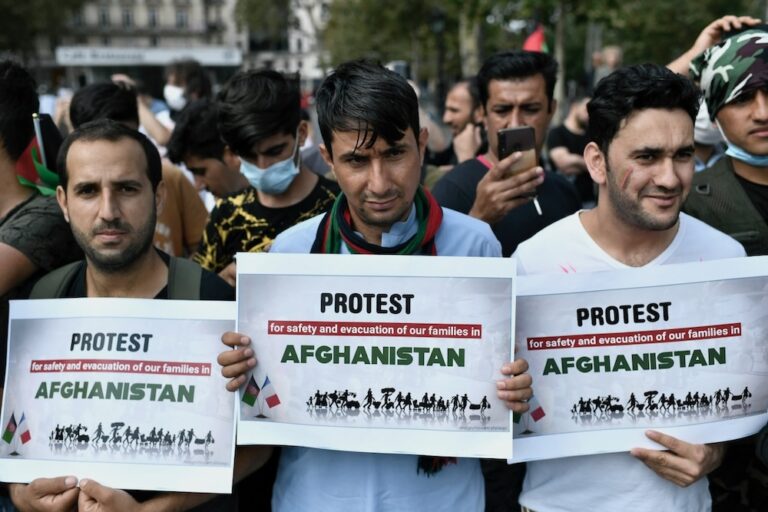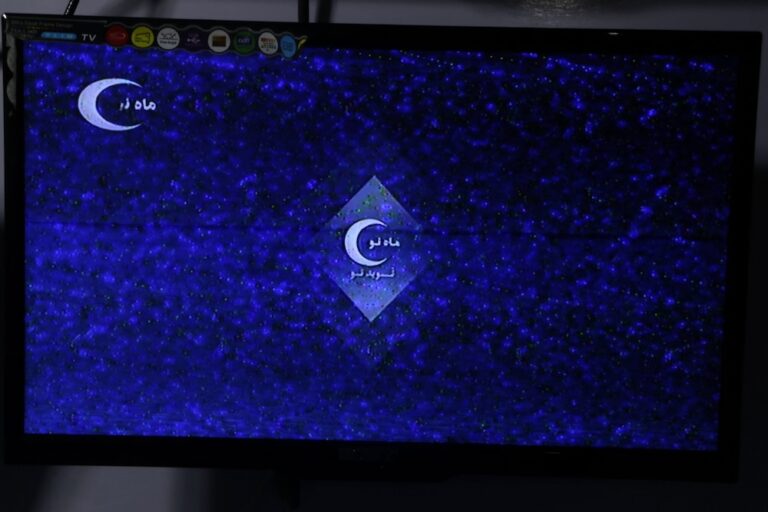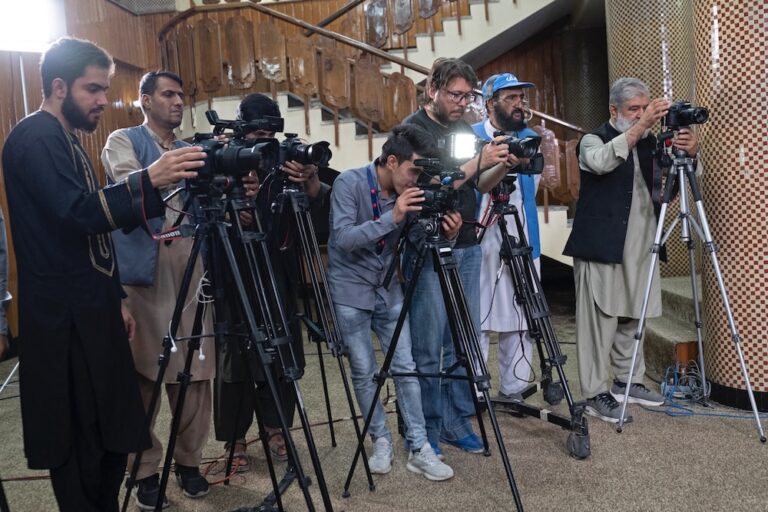(RSF/IFEX) – In a 19 December 2000 letter to Taliban Minister of Information Qudrutullah Jamal, RSF protested the arrest of Abdul Saboor Salehzai, an Afghan contributor of the BBC. The journalist has been detained by Taliban militia in Kabul for not having “respected the rules regarding Afghan people who work with foreign media.” An Afghan […]
(RSF/IFEX) – In a 19 December 2000 letter to Taliban Minister of Information Qudrutullah Jamal, RSF protested the arrest of Abdul Saboor Salehzai, an Afghan contributor of the BBC. The journalist has been detained by Taliban militia in Kabul for not having “respected the rules regarding Afghan people who work with foreign media.” An Afghan official said that Salehzai will “remain in detention until the BBC has dismissed him.” RSF asked the minister of information to use his influence with the relevant authorities in order to free the journalist unconditionally. “This arrest shows that the Taliban authorities are attempting to eliminate the foreign press’ contributors who are not devoted to the government,” said Robert Ménard, the organisation’s secretary-general. “Through this arrest, the Taliban are trying to reduce the quality of the BBC’s journalistic coverage, which reaches a large part of the Afghan population inside and outside the country,” he added.
According to information obtained by RSF, Salehzai, a contributor to and translator for the BBC correspondent in Afghanistan, was arrested by Taliban militia on 16 December at the radio station’s office in Kabul. He was allegedly transferred to an intelligence service detention centre in Kabul. He is accused of violating the rules that regulate Afghan people who work with foreign media. According to the authorities, Salehzai, who worked for the BBC for eighteen months, did not obtain the proper authorisation legislated under the law that was put into place this year. A BBC official denied this information. The day after his arrest, the Foreign Affairs Office’s spokesperson declared that Salehzai will “remain in detention until the BBC has removed him.”
For several months, Taliban authorities have been putting pressure on the BBC to fire Salehzai, accusing him of being a “communist” and working against the Taliban through the radio station. According to some sources, he refused to give in to the authorities’ pressure to inform them of the content of BBC reports before they were broadcast. His arrest occurred just as the BBC correspondent, Kate Clark, obtained a new visa from the authorities which allowed her to continue working in the country. The Taliban had conditions on the renewal of her visa, saying that she must dismiss her contributor. Salehzai, who is now in his forties, worked for the Foreign Affairs Office under the Communist and Mudjahidin regimes. He was in charge of relations with foreign journalists.
In a report entitled “The Taliban and the Media. A Country Without News or Images”, which was published in September, RSF wrote: “In August 2000, the authorities introduced strict regulations surrounding the work of foreign reporters and special correspondents. On arrival in Kabul, they are given a list of “twenty-one points to be respected”. The first rule is that they publish information that “shows what is really happening in Afghanistan” and does not “offend the people’s feelings(…).” According to the document issued by the Department of Information and Culture (DIC), foreign journalists are not authorised to “go into private houses”, “interview Afghan women without the DIC’s permission” or “photograph or film people”. Journalists are also obliged to tell the DIC when they travel outside Kabul and to respect the country’s “restricted regions”. The authorities also insist that foreign correspondents work only with interpreters and other local assistants who have been approved by the DIC, register their professional equipment with the relevant ministry and renew their work permits every year. Bureau chiefs representing international media are obliged to attend government press conferences and to check that only the name “Islamic Emirate of Afghanistan” appears in their articles and reports. The penalties for infringement of these regulations are not specified anywhere in the document issued by the authorities.
Furthermore, some Pakistani journalists have condemned the authorities’ control over which interpreters are assigned to foreign reporters. “Almost all of them are affiliated with the DIC,” revealed a Peshawar journalist. “People are afraid to say anything in front of them because everybody knows they will report back to the DIC. I’ve heard interpreters tell foreign journalists the opposite of what the person who was being interviewed actually said.” Foreign journalists are controlled in yet another manner: they are only allowed to stay at Kabul’s Intercontinental Hotel. They are banned from staying with ordinary citizens. An Afghan family who took in a Pakistani journalist was harassed by Taliban militia, reports Jan Agha, an Afghan businessman living in exile in Peshawar.
In Kabul, foreign correspondents are few and far between. Only the BBC and Agence France Presse still have foreign correspondents living in the capital, although the authorities recently gave permission to CNN and Al-Jazeera television station to open offices. Clark of BBC radio and Amir Shah of the American news agency Associated Press have often spoken about the pressures they are subjected to. Clark said security is so tight that “we have to work discreetly and very fast.” She added: “We have to grab the news and run away for fear of being victims of dirty tricks.”
Some Pakistani reporters who regularly cover the Afghan conflict have great difficulties obtaining visas in Peshawar to enter the country. Ilyas Khan, a reporter with the Pakistani monthly “The Herald”, complained: “Western journalists obtain visas easily, whereas we, who speak the Afghans’ language, are prevented from entering the country.” He said this was a deliberate attempt to shield the rapid deterioration of the situation in Afghanistan from the world’s view. He explained that “A foreign journalist with an interpreter cannot fully grasp developments or find correct information.” Shamin Shahid, Peshawar bureau chief for the daily “The Nation”, has had twenty visa applications refused by the Afghan consulate since February 1999.


